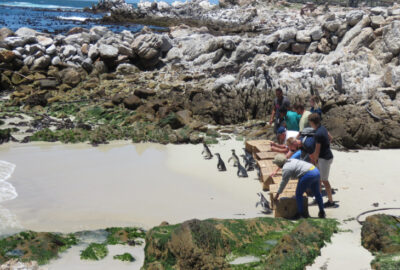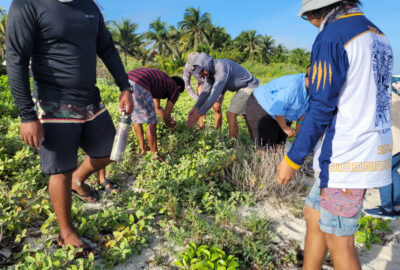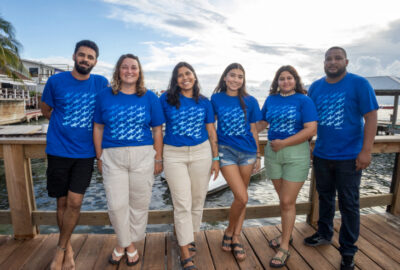MCAF Fellows Reflect on the 2023 Summit
By New England Aquarium on Friday, December 01, 2023

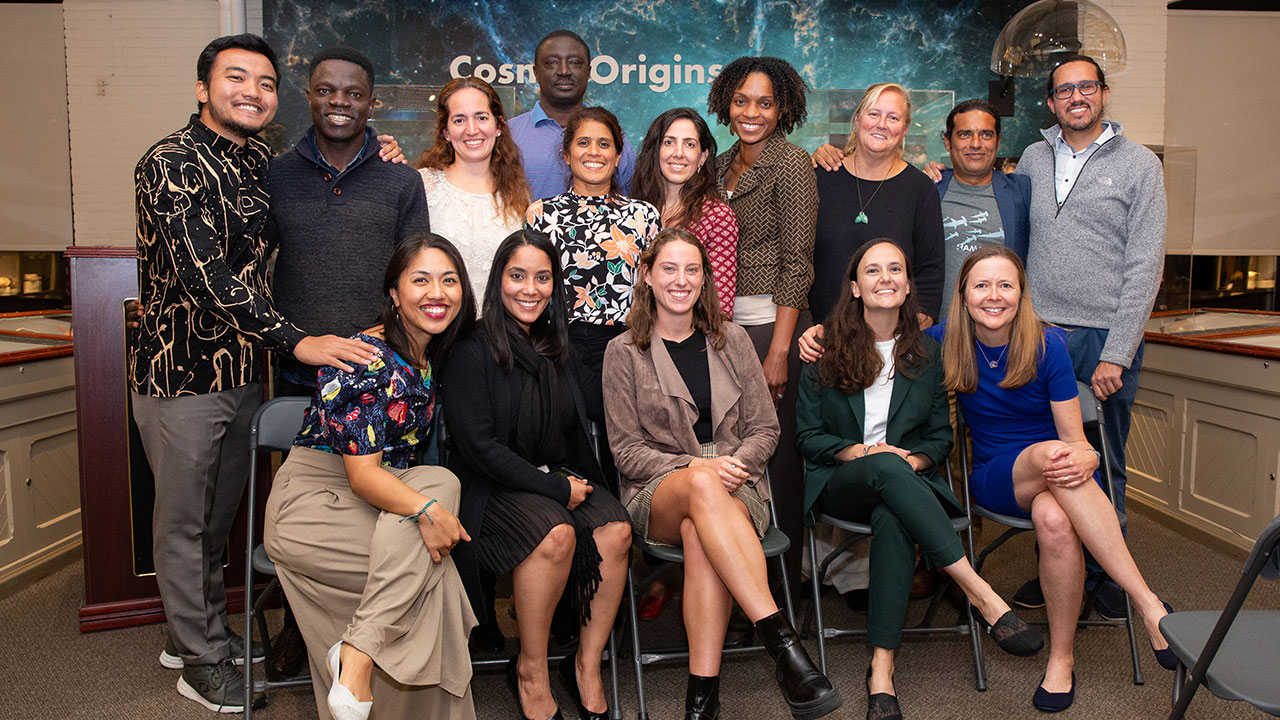
The 2023 Marine Conservation Action Fund (MCAF) Fellows Summit was a wonderful week full of stimulating conversations, learning exchange, exciting networking, and fun activities with 11 fellows from nine countries, and three additional fellows participating online. The summit aimed to incorporate the overarching themes of deepening connection and growing community within the MCAF program, the Aquarium community and with external collaborators.
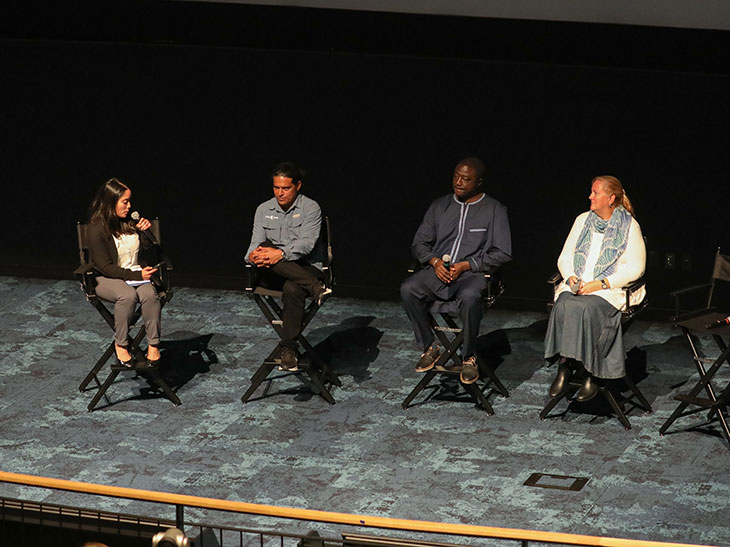
To kick off the summit, MCAF fellows presented their work at a public symposium (watch part 1 and part 2), participated in a panel discussion and engaged in a Q&A session with the audience. We were also thrilled to host students from the John D. O’Bryant High School for “Global Conservation Day” where students and visitors were able to chat with and ask questions of the fellows in the Aquarium’s exhibit space. Later in the week, fellows shared insights and experiences during a conservation roundtable with Boston community leaders.
The summit also included a workshop for fellows led by burnout resistance coach Carolon Donnally which focused on strategies for fostering mental well-being in the face of the many challenges that can come with a career in conservation. During the last session of the week, fellows reflected on the ideas and collaborations they will take with them from the summit, and shared their feedback and guidance on strengthening the MCAF program for the communities it serves worldwide.
To hear from the fellows about their experience at the summit, read on!
What new collaborations came out of the summit?
I discussed the possibility of expanding some of our sawfish surveys in El Salvador with Ani. These surveys, carried out in Peru and Ecuador, were supported by MCAF Fellow Ruth Leeney. Based on these surveys, we advocated for the Peruvian government to declare legal protection for sawfish in Peru, and we are working to develop a regional strategy for sawfish in the Eastern Pacific (EP). This is significant. Of all countries in the EP region, El Salvador is one that demonstrates the most information gaps for this critically endangered species. Developing a joint proposal with Ani would enable leadership and progress for sawfish conservation in her country and the region. It would pioneer sawfish in El Salvador and allow Ani and her team to contribute to the Regional Sawfish Strategy in development.
–Kerstin Forsberg, founder and director of Planeta Océano
I hope Florencia and I can find a way to do an exchange between our programs for cetacean ID work. My research assistant, Diana Seck, who received an Early Career Ocean Professional (ECOP) Network Programme grant from MCAF has developed the first photo ID catalog for Atlantic Humpback Dolphins anywhere in their range and I think it could be so valuable for her to learn from Florencia’s team’s longer-term work with Right whales. We’d also love to host Florencia or someone from her team in Senegal to exchange ideas about photo identification work with cetaceans.
–Lucy Keith-Diagne, PhD, founder and executive director, African Aquatic Conservation Fund
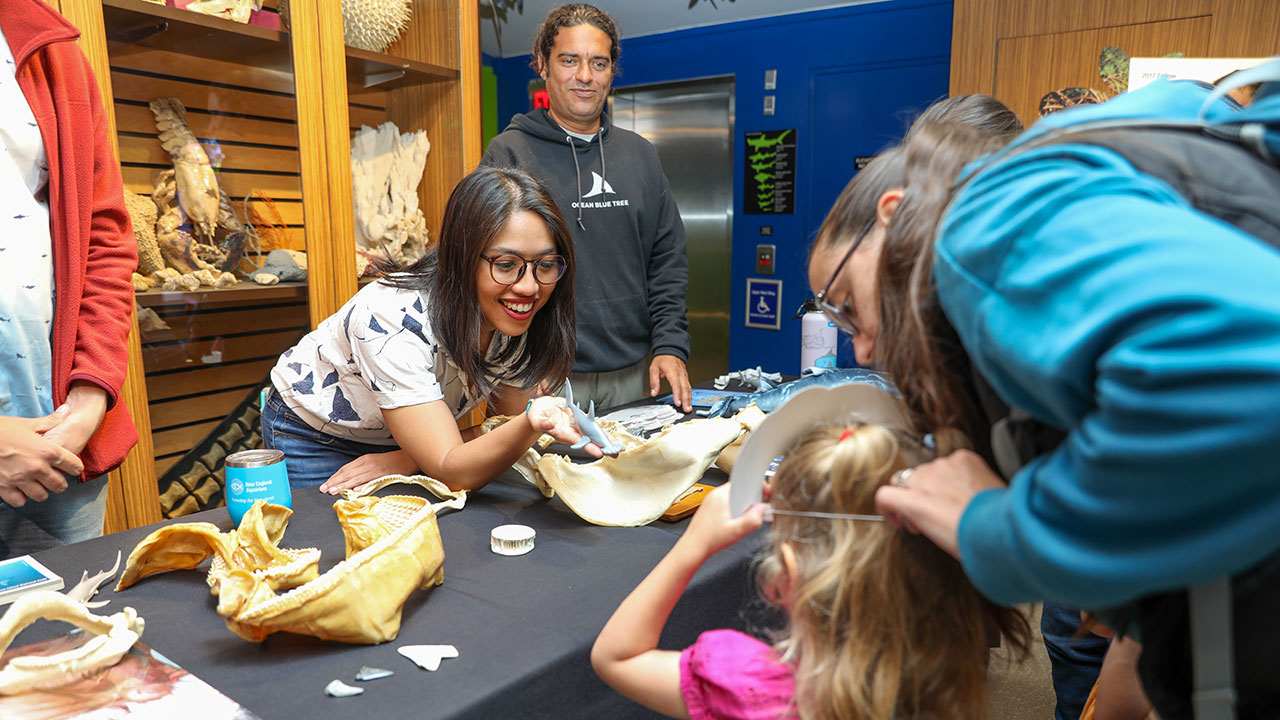
For those who are new, how did the summit compare to your expectations?
My expectations for the summit were fully met. We all had opportunities to be together, I got the opportunity to learn a lot about conservation work from the various countries and participants, and I’m hoping to incorporate aspects of what I learned into my conservation work in Ghana.
–Issah Seidu, PhD, founder and team leader, AquaLife Conservancy
All expectations were exceeded! The summit integrated key elements for all fellows from sharing our work, understanding the importance of conservation, meeting supporters, mental health, and aquarium time to being part of a beautiful MCAF family!
–Ani Henriquez, executive director of ProCosta
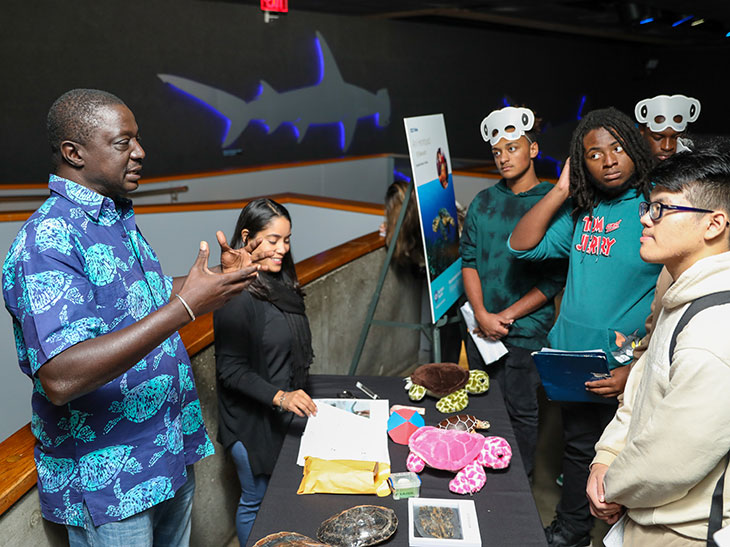
What did you find to be the most rewarding part of the summit?
What I found most rewarding was being in the company of my co-fellows and the MCAF team and learning from each other’s successes and challenges. We formed deeper connections, which is and will be foundational for future collaborations, referrals, and recommendations.
–Anna Oposa, executive director and chief mermaid of Save Philippines Seas
Interacting with like-minded individuals is always a welcome experience. It allows us to exchange ideas and knowledge and come up with better methods to conduct our work. In its own strange way, it can be comforting to hear of similar challenges and frustrations that others face, despite most of us working in so many different countries. Of course, that itself highlights how important the work that every MCAF fellow or project leader is undertaking to improve the management and conservation of threatened species and habitats across the world.
–Daniel Fernando, co-founder and director of Blue Resources Trust
All activities were very rewarding for me, especially when I got the opportunity to share our work during the symposium.
-Ani Henriquez, executive director of ProCosta
What inspired you most?
The new generation of fellows, for sure, but I also saw how the older generations are growing and successfully supporting ocean conservation in different ways, based on our different strengths.
–Andrés López, co-founder, Misión Tiburón
The MCAF fellows are a unique community in that everyone is local to the area where they work, they are committed to their spaces for the long term, and equitable partnerships are an overarching theme. In a field where parachute conservation is rife, this community is an excellent reminder of the power of being local to drive real change that benefits the species we care for, their habitats and the communities that depend on them.
–Asha de Vos, Phd, founding executive director of Oceanswell
For some, this was the first fellows gathering since 2019, how did it feel to be back together?
It was wonderful to connect with fellows in-person. Virtual interactions can never replace in-person because similar to policy meetings, where the most important decisions often take place on the sidelines of a main event, the opportunity to build networks and friendships outside of the primary agenda are what truly establishes foundations for fruitful and long-term collaborations.
–Daniel Fernando, co-founder, Blue Resources Trust Sri Lanka
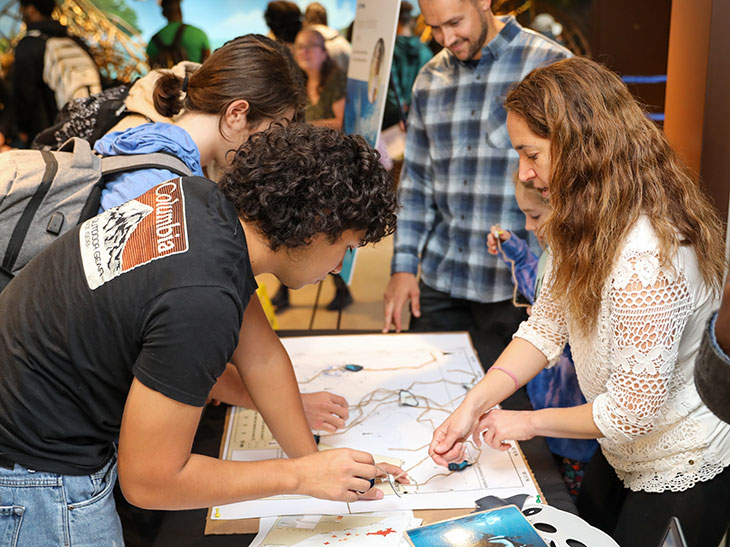
Did you learn something from someone in a different field that you could apply to your own work?
There are two sessions I’ve been thinking about: the one on burnout prevention and well-being and the last one on reflection and re-emergence. It gave me good questions and prompts to keep asking myself when I make decisions and when I attend workshops and conferences. Our resource speaker brought up the idea of “fearstorming,” i.e., brainstorming and writing down all your fears and another resource speaker asked us what our priorities would be when we go home and how we would take care of ourselves in that process.
-Anna Oposa, executive director, Save Phillipine Seas
Many! Andres Lopez’s project was particularly inspiring– not only that we work on the same issue (sharks), but his persistence and humility are the biggest qualities that he has as a project leader. Andres has been working in sharks for decades, an experience I haven’t had before managing an independent organization in small countries. Throughout our conversations, he mentioned that he innovated in many aspects of fundraising and the education project of Misión Tiburón. Making necklaces, shark masks, etc. – are the aspects of education and outreach that we haven’t thought of before.
–Rafid Shidqi, co-founder and director, Thresher Shark Indonesia

